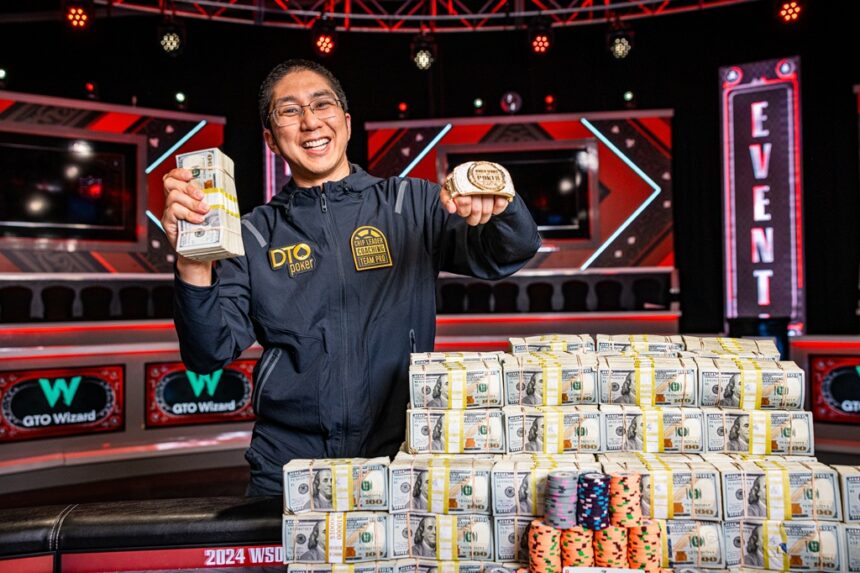BANGKOK — Thailand has ended its long-standing ban on poker tournaments, hoping to attract more tourists and stay in step with global sports trends. Acting Prime Minister and Interior Minister Phumtham Wechayachai signed Interior Ministry Order No. 2253/2568 on 30 July 2025, revoking a 1958 order that made such events illegal.
The change, which takes effect straight away, opens the door for new laws to treat poker as a competitive sport and allows the hosting of international poker tournaments. Still, the move has faced strong resistance from some, who worry it could set the stage for broader gambling approval and add to social problems in a country where gambling remains a sensitive issue.
A New Chapter for Poker in Thailand
The order removes an old rule from the 1935 Gambling Act. Mr. Phumtham said that poker needs skill, strategy, and planning, and is recognized worldwide as a sport.
He pointed out that, while some see this as gambling, it is not a blanket permission for all gambling activities but a focused effort to allow regulated poker events.
The Sports Authority of Thailand (SAT) formally recognized poker as a sport in July 2025, a decision made official at its fourth board meeting led by Deputy Prime Minister Suriya Jungrungreangkit.
Mr. Krisada Tanterdthit, Secretary to the Minister of Tourism and Sports, pointed out the financial advantages, estimating that regulated poker competitions could bring in at least 10 billion baht (about $275 million) each year and create more than 1,000 new jobs, mostly in tourism and hospitality.
He also said that, until now, Thai players had to travel abroad to take part in such events, but under these changes, they could now compete at home under strict rules.
The poker tournaments will fall under Category B of the Gambling Act, so every event will need a special licence and will also be monitored by a new Poker Sports Association. He was clear that this is not a free-for-all and that only officially sanctioned events will be allowed after the proper association is set up. Making it clear that these changes do not mean the country will allow all forms of gambling.
Debate Over Poker’s Legal Status
Despite government assurances, the timing of the order has led to public debate, particularly from opposition parties. The Bhumjaithai Party, headed by Anutin Charnvirakul, has questioned why the Interior Ministry moved so quickly to legalize poker tournaments the day before an international poker event on 31 July 2025.
Korrawee Prissananantakul, a Bhumjaithai MP and head of the House Committee on Provincial Administration, suggested the approval was rushed to allow a previously unauthorized event. Organizers, he argued, seemed oddly confident they would get permission even before applying.
Mr. Korrawee highlighted evidence of gambling, including cash prizes and online betting, advertised on several websites, calling on the Interior Ministry to reconsider its move.
Some critics link this poker decision to the recently withdrawn Entertainment Complex Bill, which aimed to legalize casinos inside larger tourist centres. That bill lost backing after Bhumjaithai left the ruling coalition, and public protests broke out over gambling concerns.
Many critics, including Bhumjaithai and conservative groups, accuse the government of using poker as the first step towards full-scale casino legalization, which they feel could harm Thai values and worsen social issues.
Anutin blamed Prime Minister Paetongtarn Shinawatra, currently suspended over an ethics investigation, for allegedly ignoring warnings from China’s President Xi Jinping about the risks of gambling legalization.
Why Gambling Remains an Issue in Thailand
Gambling has long divided opinions in Thailand, where Buddhist beliefs and a conservative culture underline the importance of social order and morality. The Gambling Act of 1935 outlaws most gambling, except for state-backed horse racing and the national lottery.
Even so, illegal gambling is widespread, with underground casinos and betting rings draining government revenue and creating fertile ground for corruption. In November 2023, a police operation in Nonthaburi saw 49 people arrested at a hotel casino, showing how big illegal gambling still is.
Backers of poker’s legalization argue that regulation will limit illegal gambling and corruption and bring more tax money into government accounts. Those against fear that legal poker, even with controls, could make gambling more normal and lead to addiction.
A 2021 opinion poll reported by Reuters found that 47% of Thais opposed legal gambling because of worries about crime and morality, while just 21% supported the idea. Critics also question whether any boost in tourism would outweigh the risks, pointing to similar projects in neighbouring countries that failed to deliver promised jobs for locals.
The Democrat Party’s deputy leader also questioned whether legal poker or casinos would attract many foreign visitors, given that Cambodia, Laos, and Myanmar already have similar venues. He fears these new ventures would mostly attract Thai players and could drive up already high household debt.
Cautious Steps Ahead
Phumtham has stressed that the government is moving forward carefully. A legal review committee will create a strict set of rules for poker tournaments. Every event will need provincial approval, topped off with a sign-off from the provincial administration’s director general and the permanent secretary at the Ministry of Home Affairs.
Phumtham repeated that this is not an effort to legalize gambling, pointing out that poker is accepted as a sport in many other countries.
As the country weighs up this complex issue, the discussion over poker reflects bigger questions about economic development and traditional values. While the government sees legal poker as a way to encourage tourism and improve Thailand’s global standing, opponents fear it could open the door to full gambling legalization.
With the future of the Entertainment Complex Bill still uncertain and public opinion divided, Thailand’s entry into legal poker is a gamble with both economic and social stakes.














